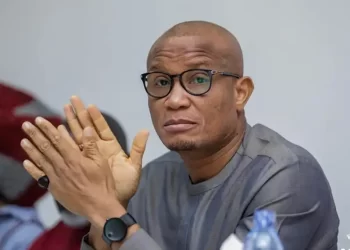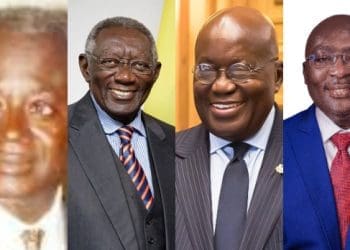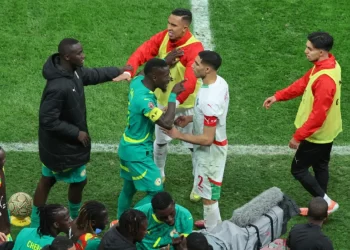Since gaining independence in 1957, Ghana has had a number of distinguished jurists serve as Chief Justice, the highest judicial officer in the country.
Their leadership has spanned different republics, military regimes, and constitutional transitions, reflecting Ghana’s evolving legal and political landscape.
Below is a chronological overview of these Chief Justices, highlighting their legacies and contributions to Ghana’s judiciary.
1. Sir Kobina Arku Korsah (1956–1963)
Sir Arku Korsah was the first Ghanaian (then Gold Coast) Chief Justice. He held office from shortly before independence into the early years of the First Republic.
His tenure was marked by high-profile political trials, including the Kulungugu trial, which strained his relationship with Kwame Nkrumah.
He was removed in 1963 under controversial circumstances after acquitting defendants in a politically sensitive case.

2. Julius Sarkodee-Addo (1964–1966)
Justice Julius Sarkodee-Addo succeeded Korsah under Nkrumah’s government. His appointment ended abruptly following the 1966 coup that overthrew Nkrumah.
3. Edward Akufo-Addo (1966–1970)
Edward Akufo-Addo served as Chief Justice during a period of transition following the coup. He served until 1970 and later became Ghana’s ceremonial President in the Second Republic.
4. Edmund Alexander Lanquaye Bannerman (1970–1972)
Known as E. A. L. Bannerman, he served as Chief Justice from 1970 until the 1972 military takeover by the National Redemption Council, which removed him from office.
5. Samuel Azu Crabbe (1973–1977)
Samuel Azu Crabbe, a respected jurist and barrister, became Chief Justice under the National Redemption Council. Beyond his judicial role, he later chaired a Special Investigation Board that probed the abduction and killing of judges in 1982.

6. Frederick Kwasi Apaloo (1977–1986)
Frederick “F. K.” Apaloo is widely regarded as one of Ghana’s most influential Chief Justices. Appointed in 1977, he served through the Third Republic and continued under the PNDC regime.
A staunch defender of judicial independence, Apaloo resisted attempts to remove him during political upheaval. After retirement, he achieved the rare distinction of serving as Chief Justice in Kenya.
7. Ernest Nee Pobee Sowah (1986–1990)
E. N. P. Sowah succeeded Apaloo during the PNDC era. His appointment was controversial because he was retained beyond the mandatory retirement age under a special law, raising concerns about judicial independence.
8. Philip Edward Archer (1991–1995)
Philip Edward Archer became Chief Justice as Ghana prepared to return to constitutional governance. He helped stabilise the judiciary and initiated several internal reforms.
9. Isaac Kobina Donkor Abban (1995–2001)
Justice Abban was appointed Chief Justice in 1995. Before returning to Ghana, he had served abroad, including a stint as Chief Justice in the Seychelles.
10. Edward Kwame Wiredu (2001–2003)
Edward Wiredu’s tenure was brief but transformative. He introduced innovative reforms such as the Fast Track High Courts, Alternative Dispute Resolution (ADR), and the Judicial Training Institute — all of which continue to shape Ghana’s justice system.

11. George Kingsley Acquah (2003–2007)
George Kingsley Acquah assumed office in July 2003 and served until his passing in March 2007. He is remembered for strengthening judicial administration and promoting judicial ethics.
12. Georgina Theodora Wood (2007–2017)
Justice Georgina Wood made history as Ghana’s first female Chief Justice. Appointed in 2007, she served for a decade and became a symbol of judicial integrity, gender advancement, and institutional stability.

13. Sophia Abena Boafoa Akuffo (2017–2020)
Sophia Akuffo, who had served for two decades on the Supreme Court, became Chief Justice in 2017. Her extensive experience brought continuity and a focus on judicial modernisation.

14. Kwasi Anin-Yeboah (2020–2023)
Justice Kwasi Anin-Yeboah took office in January 2020. He oversaw the judiciary during key modernisation efforts and infrastructural improvements before retiring in May 2023.

15. Gertrude Araba Esaaba Sackey Torkornoo (2023–2025)
Gertrude Torkornoo was sworn in on 12 June 2023 as the 15th Chief Justice since independence. Her term ended abruptly when she was dismissed on 1 September 2025.

16. Justice Paul Baffoe-Bonnie (2025-)
President John Dramani Mahama has sworn in Paul Kwadwo Baffoe-Bonnie as the new Chief Justice of Ghana.
Justice Baffoe-Bonnie was sworn in at an event that took place at the Jubilee House in Accra on November 17, 2025. Paul Kwadwo Baffoe-Bonnie becomes Ghana’s 16th Chief Justice after Gertrude Araba Esaaba Sackey Torkornoo.
He comes to the position after serving as an acting chief justice since April this year, when Gertrude Araba Esaaba Sackey Torkornoo was asked to step aside for an investigation to be conducted.
Justice Paul Baffoe-Bonnie went through a rigorous vetting process that saw him express his knowledge of the law and what he intends to do to transform the judiciary.













